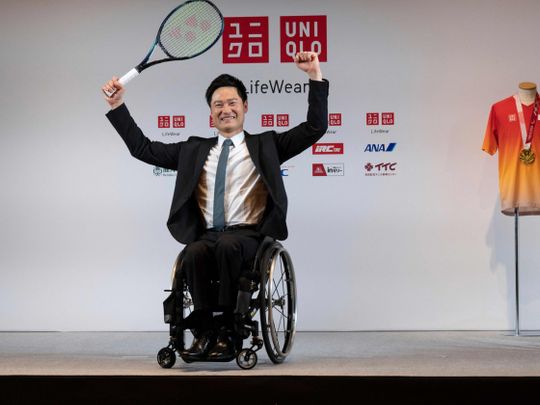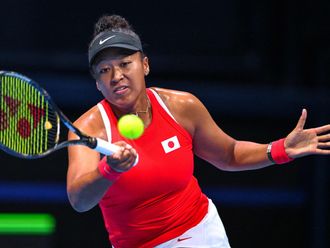
Tokyo: Japanese Paralympic legend Shingo Kunieda said Tuesday he was ending his illustrious career satisfied that wheelchair tennis was now “finally seen as a sport” in the eyes of the public.
Kunieda is known as the Roger Federer of wheelchair tennis and won 50 Grand Slam titles and four Paralympic gold medals, including a third singles title at the Covid-postponed Tokyo Games in 2021.
The 38-year-old, who announced his retirement last month, also spent a total of 582 weeks as the men’s world number one.
Kunieda said his first Paralympic gold medal at the 2004 Athens Games was not even reported on the sports pages of Japan’s newspapers but attitudes have since “changed a lot”.
'Seen as a sport'
“After the Tokyo Games, it really felt like it was now being seen as a sport,” he told reporters.
“I had always been trying to get people to think of it as a sport, and last year I didn’t feel the pressure to do that any more.
“Finally, I was able to just purely play tennis and compete against my opponent.”
Kunieda, who was diagnosed with spinal cancer as a child, said he “didn’t even know what the Paralympics were” when he first picked up a racket as an 11-year-old.
He ends his career as one of the Paralympics’ greatest athletes, and was number one in the International Tennis Federation’s year-end rankings 10 times.
He also won all Grand Slam singles titles in the same calendar year five times. The last prize to elude him was the Wimbledon men’s singles title, which was introduced in 2016.
He chalked that off when he beat Britain’s Alfie Hewett in last year’s final.
“Wimbledon was the last title left for me to win, and after I hit the winning point, I celebrated with my team,” he said.
People's Honour Award
“The first words that slipped out my mouth were ‘now I retire’, right there on the court.”
The Japanese government is considering giving Kunieda the prestigious People’s Honour Award for achievements in sport, entertainment and culture.
Kunieda, who turned professional in 2009, said he has only a vague idea of what he intends to do next but he would like to continue contributing to wheelchair tennis.
His 16-year-old Japanese compatriot Tokito Oda reached the final of the Australian Open men’s singles last month in only his third Grand Slam appearance.
“I think I’ve left a bigger footprint than I thought I would when I turned professional,” Kunieda said.












